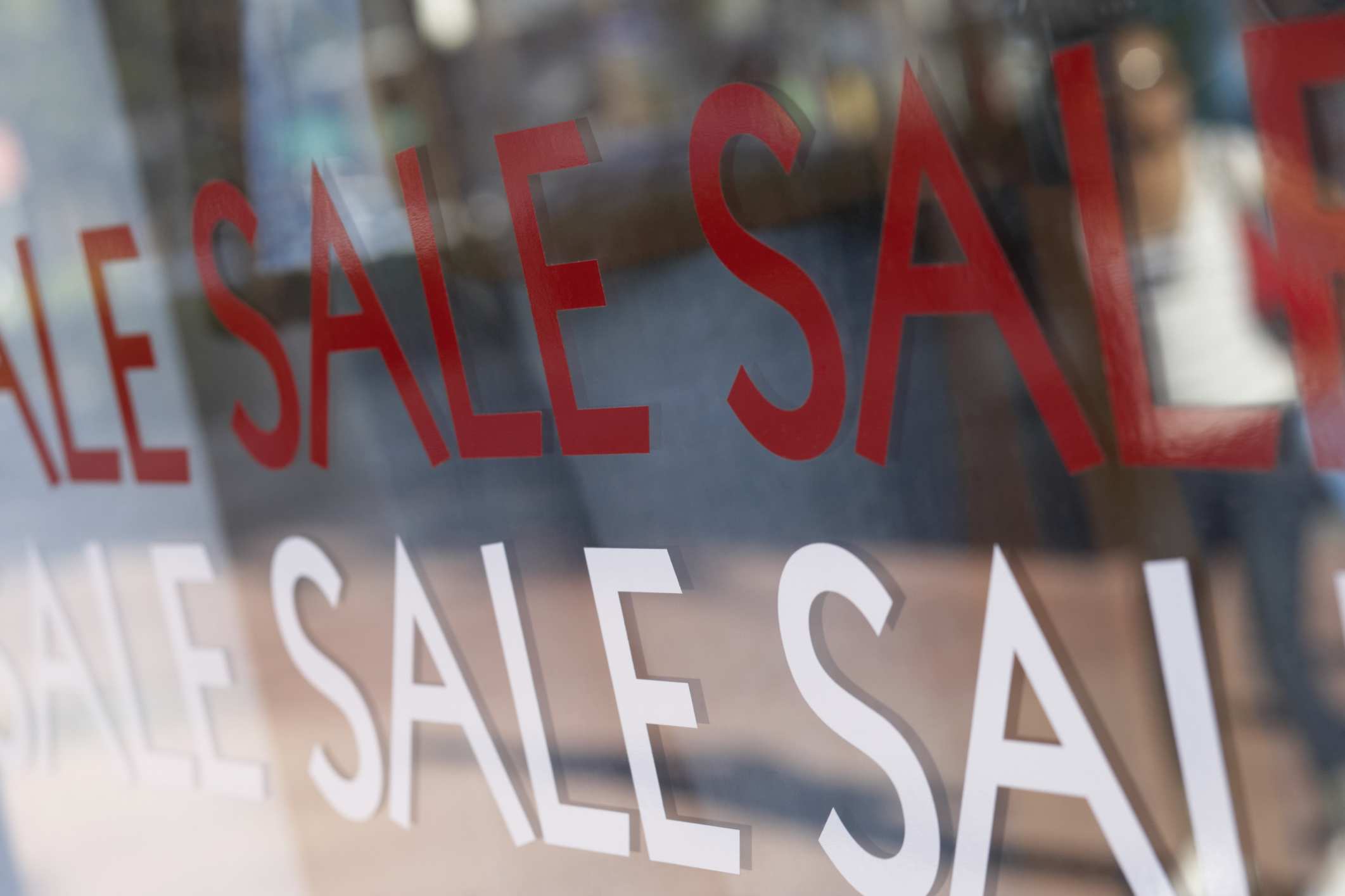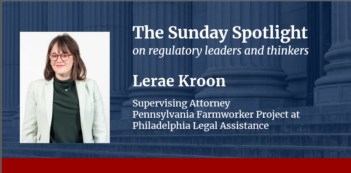
Sales encroach on Thanksgiving Day festivities as moral laws restricting holiday retail sales disappear.
Today, most Americans will partake in the tradition of a celebratory Thanksgiving dinner with family, friends, and neighbors, and will join with each other in giving thanks. Some retail employees, though, will be spending part of the day at work. And tomorrow millions of Americans will celebrate a much more modern holiday known as Black Friday.
Black Friday is often said, incorrectly, to be so named because it is the first day of the year that retailers operate “in the black,” the accounting phrase for turning a profit. The real etymology is less positive, though. It stems from Philadelphia in the 1950s, when police officers started referring to the days following Thanksgiving as Black Friday and Black Saturday because of the swarms of pedestrians and automobiles flooding the city’s downtown to visit department stores, causing mayhem for the officers in the process.
Friday’s retail holiday only became nationally known in the late 1980s, though, when retailers across the country began using the day to lure droves of customers into their stores with deep discounts.
Although Black Friday shopping used to begin in the early hours on the day after Thanksgiving, a more recent trend is for sales events to start even earlier, even creeping into Thanksgiving Day itself. This year, major retailers including Walmart, Target, and Sears will open their doors at 6 p.m. on Thanksgiving, meaning that retail workers must go to work at a time when others are typically still enjoying their holiday dessert.
Despite backlash from some protestors concerned about these early openings, a gradual creep in retail hours has been made possible by the demise of “blue laws” in most states. Blue laws describe various prohibitions on certain commercial activities, such as the sale of alcohol, cars, or even household appliances. These laws originally restricted such secular behaviors on Sundays, but eventually expanded to prohibit activities on major holidays including Thanksgiving and Christmas.
Blue laws get their name from the use of “blue” as a derogatory term for rigid moral codes, and “blue noses” for the people who adhered to them. They were not, as is sometimes stated, printed on blue paper.
The Supreme Court has upheld blue laws on multiple occasions, finding that they serve a legitimate secular state goal of establishing a day of rest on Sunday and other holidays, despite their religious origins. Many of the restrictive laws have nonetheless been repealed in light of changed modern values and the loss of economic earnings caused by the laws.
Shopping activities on the day after Thanksgiving, which is not a national holiday but is recognized as a holiday by at least 20 states, were not subject to blue law restrictions. But as the sales have started to begin on Thanksgiving Day itself, they have run into blue law restrictions in some places.
A few staunch New England states have held fast to their blue laws. Maine, Massachusetts, and Rhode Island, for example, still prohibit large retailers, including supermarkets, from operating on Thanksgiving Day. Despite some recent efforts to repeal the laws in these states, the blue law restrictions remain in effect in these states and retailers there must remain closed until Friday. (One exception is L.L. Bean, Maine’s iconic purveyor of outdoors equipment and sporting goods, which operates 24 hours a day, 365 days a year, and for which the state legislature created a special exemption from the blue laws.)
In most states, however, there are no labor restrictions on opening retail establishments on Thanksgiving, and retailers are not required to pay Thanksgiving Day workers overtime. Certain companies voluntarily offer employees overtime pay for working shifts on the holiday.
Some retailers, like Nordstrom and Costco, have gone still further and eschewed the trend of opening on Thanksgiving Day altogether, instead advertising that they will stay closed for the benefit of their employees. Still others have gone a step further, like the popular outdoors retailer, REI, which will close its doors on both Thanksgiving and Black Friday as part of its #OptOutside campaign to encourage both its employees and customers to enjoy the outdoors instead of shopping those days.
These developments, together with the increased popularity of online shopping deals and ongoing sales throughout November, create at least some question about Black Friday’s continuing popularity and about whether any momentum toward retail shopping on Thanksgiving itself will eventually subside.



